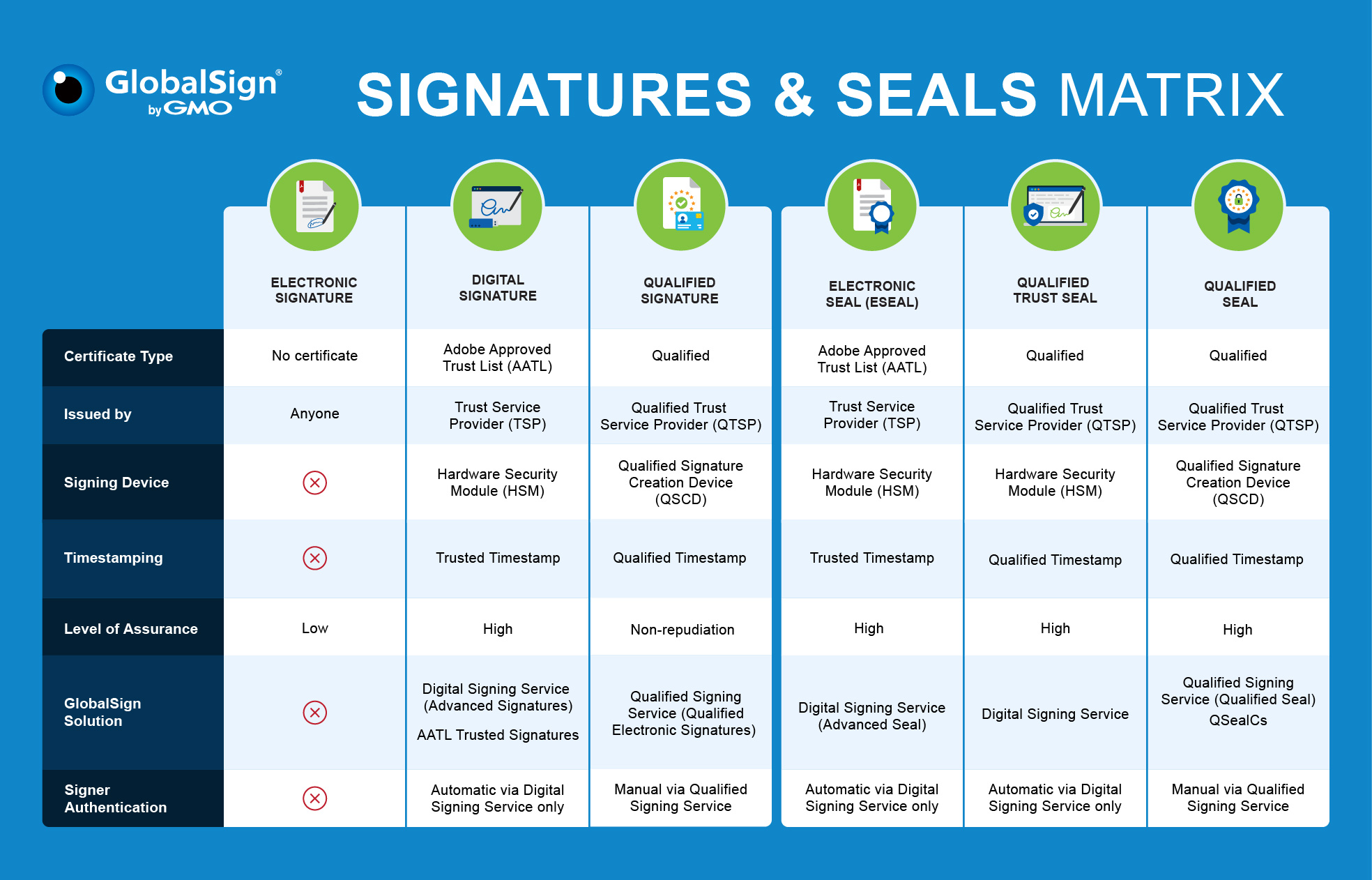When implementing Qualified Electronic Signatures (QES), a number of variables must be carefully taken into account, particularly when diverse businesses, public organizations, and industries have unique requirements.
In addition, particular sectors have a requirement to protect confidential information. In this article, we take a look into the diverse needs of various industries and the key concerns that also need to be considered.
Back to Basics: Electronic Identification, Authentication and Trust Services - eIDAS
The primary objective of the eIDAS regulation (EU regulation 910/2014) is to advance and enhance digital trust, security, and convenience in online interactions by establishing a unified set of rules governing electronic identification and trust services. These services encompass electronic signatures, seals, timestamping, delivery services, and website authentication. The regulation also extends its oversight to entities engaged in electronic transactions within the European Union.
The eIDAS regulation has been enforceable across the EU since July, 2016. eIDAS was established to enable the ability to safely perform electronic transactions online when engaging with enterprises or public services, allowing both the signatory and the recipient a higher level of convenience and security.
Want to know how GlobalSign can help you comply with eIDAS?
Why Choose a Qualified Electronic Signature?
A Qualified Electronic Signature (QES) incorporates all the security attributes of an advanced electronic signature. Furthermore, it distinguishes itself by utilizing a qualified certificate and multi-factor verification to authenticate the signatory. Acknowledged as the sole signature explicitly recognized as a legal equivalent to a handwritten signature in all European Union member states, a QES carries third-party assurance. This entails rigorous auditing and adherence to standardized methods, demanding the highest levels of security and trust protocols.
- Authenticity - a Qualified Electronic Signature is unique to the signatory, ensuring that it genuinely represents the individual and can be reliably attributed to them.
- Identity - a Qualified Electronic Signature guarantees identity verification to confirm the true identity of the signatory and prevents unauthorized use.
- Integrity - a Qualified Electronic Signature has the capability to detect any subsequent changes to the data it is associated with, ensuring that the integrity of the signed information is maintained.
- Authentication - the signatory is in complete control of the signing process, guaranteeing that the signature is a deliberate and authorized act by the individual. This control helps prevent unauthorized use and adds an extra layer of security.
Factors to Consider When Implementing Qualified Electronic Signatures
Under eIDAS, qualified certificates for qualified electronic signatures can only be issued by a Qualified Trust Service Provider (QTSP).
A QTSP is required to undergo an independent conformity assessment and audit conducted by an accredited institution, recognized by the national accreditation body, as mandated by the eIDAS regulation. This assessment evaluates various aspects, including security, level of trust, and quality. The overarching goal of these regulations is to enhance trust among consumers and businesses while fostering the adoption of certified trust services.
QTSPs contribute to non-repudiation by providing Qualified Electronic Signatures, implementing strong identity verification processes, maintaining secure key management practices, and adhering to legal and regulatory standards, which contribute to the overall integrity of Qualified Trust Services. This combination of factors enhances the credibility and legal validity of electronic transactions, reducing the likelihood of parties being able to deny the authenticity of their actions.
The Benefits of Choosing The Right Provider
The benefits of choosing a Qualified Trust Service Provider (QTSP), such as GlobalSign, means that any key concerns related to data security, compliance, efficiency, legal validity, identity verification, and cross-border signing are addressed as follows:
- Data Security - Stringent security measures are employed, including encryption and secure storage, to protect the integrity and confidentiality of Qualified Electronic Signatures. Audit trails and access controls are implemented to ensure accountability and traceability
- Compliance - Qualified Electronic Signatures are aligned with industry-specific regulations, especially in sectors like financial services. The platform supportsegulatory standards like PSD2, ensuring compliance with financial services regulations
- Efficiency and Integration - Efficiency is ensured through seamless integration with existing systems, supporting digitization efforts and remote access, facilitating a smooth qualified electronic signature transaction, as well as other signature types while maintaining workflow efficiency
- Cross-border Digital Signing - Facilitation of cross-border digital signing. This means that organizations can leverage the appropriate signing service for electronic signatures across different jurisdictions, ensuring compliance with international regulations and standards

- Legal Validity of Documents - Qualified Electronic Signatures adhere to legal standards, providing a reliable and legally recognized method for signing documents and contracts. This ensures the enforceability and validity of electronically signed documents in compliance with relevant legislation
- Identity Verification - Identity verification is carried out across various industries and use cases, including HR, legal, insurance, and financial services, incorporating robust authentication methods, ensuring that signatories are accurately identified and verified prior to signing
- Digital Onboarding Process - Provides efficiency by streamlining digital onboarding processes including the elimination of time-consuming manual steps through the use of electronic signatures, making the onboarding experience faster and more convenient for both organizations and individuals
GlobalSign’s Qualified Signing Service (QSS) empowers businesses to foster digital transformation by providing a secure, efficient, and legally valid means to sign documents and facilitate collaboration on a global scale.
Talk to our team about qualified signing solutions today
If you would like to learn more about innovations on the horizon and how digitalization is driving the adoption of electronic signature services in both the EU and UK, read GlobalSign's eBook.








